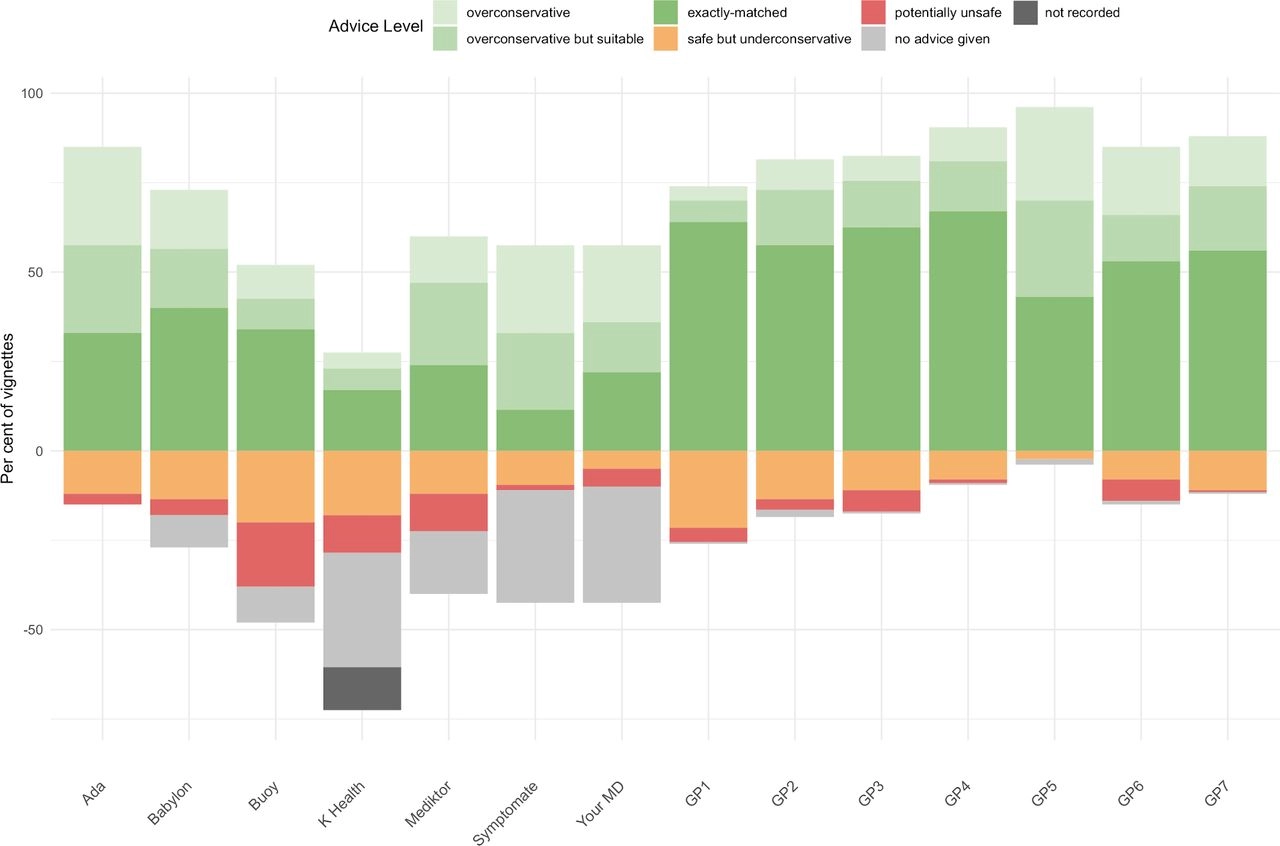

Digital healthcare digest — December 2020
Hey! This year has been a huge one for the digital health industry — and this digest covers the most interesting, insightful, and useful news from the field for the last month. Which startups received funds? What partnerships have been formed? Who acquired who and why? How tech aids in the fight against the pandemic? The answers are here.
Watch selection of the brightest news on our YouTube channel — and enjoy your reading.
New products and launches in the digital health industry
VST Enterprises, a British company, has launched a V-Health Passport - “fit to fly” document with passenger’s ID, their COVID-19 test results, and vaccination details in one app.
Apple is releasing a new feature for Apple Watches: VO2 Max; it measures low-intensity workouts (like walks.) It’ll be used to encourage users to manage their fitness levels and track their cardio health.
Swiss insurance technology company dacadoo launched a digital health engagement platform called Wheel of Life: it helps users manage their health, telling them about behavioral science, helping them adjust their diets, quality of sleep, physical activity, and many other determinants of health towards a better lifestyle.
British NHS employs “virtual patient” artificial intelligence to help doctors with training; TIME has named this technology one of the best inventions of 2020.
Papa, a company for senior health & companionship, released a new health management platform - Papa Health; it will expand Papa’s offer to virtual primary care, urgent care, and care for patients with chronic conditions; through the platform, people from Papa Pals and Papa Docs - young people who wish to help their seniors and certified clinicians respectively - will provide seniors who need help with transportation, care, and medical services per request.
This month, Tom Stanis, Verily’s co-founder, launched Story Health with $4M in seed funding; Story Health will be a platform for care coordination and virtual care, with an element of machine learning that will aid doctors in selecting the right therapies for their patients.
Welldoc added a new tool for behavioral health in their chronic condition platform; this tool aims to aid people who manage diabetes by themselves.
Poland company Indermedica that does AI-driven preliminary diagnostics launches a new feature called Specialist Recommended - to provide patients with personalized advice on post-clinical triage care.
OMRON Healthcare launched the first clinically-approved medical device that accurately detects wheezing in young children, allowing parents to catch signs of asthma early. WheezeScan is launched in the UK and Germany.
Digital health startup funding in December
American Blueprint raised $3.4M in the seed. The startup builds software for mental health clinicians that collects and organizes patients’ mental health data; their platform also covers insurance and connects to patients’ smart devices.
A startup Proscia with software platform Concentriq, an AI-driven tool to help labs, health systems, and life sciences companies to interpret tissue data on the subject of computational pathology, raised $23M in Series B.
Everywell, a digital consumer platform to order and view lab tests remotely, raised $175M in Series D.
German Perfood raised €5 in Series A; digital therapeutic startup launches its prescription app sinCephelea for people with migraines.
British uMed got £3.7M for their automation-driven platform for clinical studies to accelerate their processes in a way that is compliant with regulations.
Calm, a mental health platform for sleep and relaxation, landed $75M in Series C. Now, the company's valuation is close to $2B. They plan to settle more heavily on the employer health market.
Lyra Health raised $175M at Series E, and now it has a $2.25B valuation—it’s doubled in just a couple of past months. It’s a mental health startup that provides care through an employer-based model as well.
Virta Health is now, too, has a valuation of more than $1B—$65M of new investment that helped the behavioral therapy company with a diabetes focus join the digital health unicorns.
Cityblock Health raised $160M in Series C and also joined the cohort with over $1B in valuation. The startup provides care to low-income communities in America. They plan to expand to cover more underserved people.
“LinkedIn for Healthcare,” H1, raised $58M: their idea to connect the healthcare workforce in a separate place became vital in the pandemic.
Health data company that synthesizes clinical datasets with APIs that enable real-time data exchange, Diameter Health, scored $18M in Series B.
Pear Therapeutic, a prescription startup, got $80M in series D. Right now, they release prescription apps that help with chronic insomnia, schizophrenia, and substance abuse. They plan to use the funds to release three more commercial products.
Elation Health, a company that develops EHR for primary care, raised $40M in Series C.
nference, developer of a platform nderXsoftware that synthesize biomedical information to simplify the search processes for researchers and doctors, raised $60M in Series C.
Digital healthcare market news, deals, and partnerships
Headspace partnered with Netflix to launch its original series. They’ll start airing in January and will be focused on meditation. Two other series, covering sleep and another unknown subject will launch later.
Oscar, a large insurance tech company, raised $140M of investments and filed to go public.
EverCommerce, a company that provides marketing, business management, and customer retention software to service-focused businesses, bought Updox, a healthcare communication platform for virtual and in-person care.
HealthHero, a British virtual care company, acquired Doctorlink, a platform for digital triage; HealthHero plans to add Doctorlink’s care coordination features to their primary care tool.
Peloton, a connected fitness unicorn, acquired Prector, a manufacturer of commercial fitness gear, for $420M. When the deal is closed, Peloton will have its manufacturing means and get more control over the supply chain.
PointClickCare, a cloud-based tech developer for the long-term and post-acute care niche, will acquire Collective Medical, a platform for care coordination. The deal will provide healthcare teams with a smooth connection between urgent, ambulatory, and post-acute settings and will allow them to get real-time patient data on any stage of their movement across the care pipeline.
British Physitrack, a physical therapy provider, acquires their competitor (!!) Finnish Physiotools, a company that does telemedicine, software development for healthcare, and other things.
Ping An Good Doctor, China’s healthcare ecosystem platform, decided to cooperate with Tsumura China Inc, a manufacturer of Kampo medicines in Japan. The partnership aims to make the connection between online healthcare and pharmacies in China stronger.
Regulations and clearances in digital health
Europe finally clears Fitbit to complete the deal with Google on the European market: they’ve been investigating the merger since August, with warnings from Amnesty International on prioritizing patients’ privacy and health. The deal is allowed, under the requirement of a 10-years ban on using customer data in marketing and other rules, aiming to prevent Fitbit from getting a monopoly on the wearable market.
At the same time, the Australian regulator rejects Google’s acquisition of Fitbit and delays the completion of the deal once more.
Thanks to new FDA clearance, Apple’s ECG feature called A-Fib can detect atrial fibrillation which is great for people with the risk of getting heart disease that is a leading cause of death in America.
Etiometry, a startup that develops data management software for the collection, analysis, verification of clinical data, gets 510(k) clearance from the FDA. After clearance, they will add patient-specific thresholds for the risk of inaccurate delivery of oxygen or ventilation of carbon dioxide, provide clinicians with AI-driven insights on why and how patients’ risk scores are changing, and get them a remote, system-wide view on visualized patient data, which is, you know; pretty cool.
Mahana Therapeutics’ Parallel, a CBT-based prescription digital therapeutic for patients with irritable bowel syndrome, gets a De Novo clearance from the FDA.
AireHealth, an American startup that focused on respiratory health, got FDA 510(k) clearance for their connected nebulizer: it vibrates to nebulize medication for the inhaler at home and connects to an app called VitalCompanion that tracks symptoms and helps users’ adherence.
Data protection and security threats in healthcare
Now, hackers use vaccine-related teams in their phishing letters. Please be vigilant with what you’re clicking on!
The federal government warns that hackers also explore authentication mechanisms in outdated software, so: friendly reminder - update your software and operating system.
Science and business research in digital healthcare
Flow, a Swedish medical device company that releases at-home brain stimulation headsets with treatment for depression, reported a 247% increase in their sales since the pandemic started. Nearly 30% of their users reported overcoming overwhelming depression.
Research showed that Big Health’s Sleepio has been the most cost-effective solution among other insomnia interventions like CBT or pharmacotherapy.
Bold Health will compare the efficiency of their Zemedy app for irritable bowel syndrome and Headspace’s solution for mindfulness and meditation in a research study.
A study in npj Schizophrenia shows that Facebook activity can be used to identify people with mood disorders and schizophrenia a year before they are hospitalized.
A new peer-reviewed study in BMJ Open is released to compare symptom assessment apps Ada, Babylon, Buoy, K Health, Symptomate, WebMD, Your.MD and Mediktor on coherence, accuracy, and so on. Ada was rated as the most accurate and comprehensive app but has been still overplayed by human GPs. In general, both accuracy and understandability of the content have been found lacking.

A report from GSK Consumer Healthcare called The Health-Economic Benefits of Self-Care in Europe found that, despite the fact most Europeans agree it’s their responsibility to manage their health, only 2 in 10 are confident they can do it. It’s connected to the lack of digital literacy, which is a huge barrier to the adoption of digital therapeutics, telemedicine, and other cool and useful things from digital health.
Digital healthcare vs COVID-19 in December of 2020
Abbot received emergency use authorization for their at-home coronavirus antigen test. Users can test themselves with their app, results are on in 20 minutes; the test costs $25.
Singaporean Cell ID Pte. Ltd. developed a genetic test kit that can detect, through the palm-sized device and app on a laptop, to detect if a person has COVID-19. Users have to apply a bit of saliva to the biochip, then plug it into the laptop, then wait five minutes for a positive result, and about an hour for a negative one.
BMJ Open Sports Exercise Medicine research says VR can help post-coronavirus patients to receive rehabilitation. Check out our article on how else VR can aid healthcare.
The FDA authorized the first over-the-counter COVID-19 diagnostic test, developed by Ellume Health, a startup from Australia. The kit comprises a Bluetooth-connected app that helps people figure out how to use the test through a nasal swab.
Google fights with misinformation about coronavirus vaccine, delivering timely and accurate info about new ones right after corresponding search queries.
Oura Ring can detect early signs of fever associated with COVID-19 and flu three days before the first symptoms.
DreamLab app enrolled 100k participants to aid their virtual supercomputer using people’s smartphone power to power the calculations that are needed to figure out the most efficient coronavirus treatment.
See you next year!
Tell us about your project
Fill out the form or contact us

Tell us about your project
Thank you
Your submission is received and we will contact you soon
Follow us

